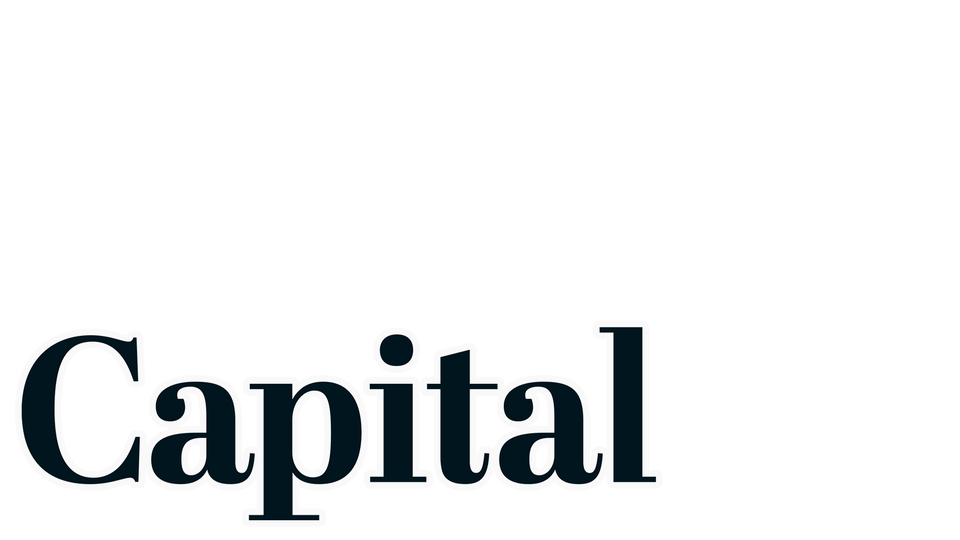The US investor Certares actually wanted to take over the now insolvent tour operator FTI. But apparently no takeover proceedings were ever registered

This is original content from the Capital brand. This article will be available for ten days on stern.de. After that, you will find it exclusively on capital.de. Capital, like the star to RTL Germany.
The insolvency of the tour operator FTI has put a stop to many people’s planned trips. The holidays seemed to be saved until the very end, just like the heavily indebted travel company itself. In mid-April, the US financial investor Certares announced that it would take over Europe’s third-largest tour operator. Since then, the deal has been pending completion – according to media reports, also because antitrust proceedings had not yet been concluded.
As Capital has now learned, however, no application for review under merger control had been submitted to either the Federal Cartel Office or the competent authority of the European Commission (EU Merger Regulation). Only then would the takeover procedure have been set in motion. “No such project was not notified to the Federal Cartel Office and therefore no review under merger control was or is being carried out in this context,” the authority said in response to Capital’s inquiry. At the European level, too, such a transaction “was not officially reported to the Commission in accordance with the EU Merger Control Regulation,” a Commission spokeswoman confirmed to Capital.
The federal government was apparently clueless. When asked, the Federal Ministry of Finance stated that it had no idea that FTI and Certares had never applied for antitrust proceedings. The Federal Ministry of Economics simply referred to the responsible Federal Cartel Office.
In the official announcement at the beginning of May, FTI wrote that the deal with Certares was subject to the “usual regulatory approvals and conditions required for processes of this kind”. This usually means antitrust review procedures. Various media outlets also reported at the time that the “competition watchdogs” still had to approve the deal. When asked, neither FTI nor Certares wanted to comment on the apparently missed applications. The law firm Herbert Smith Freehills, which advises Certares, also declined to comment.
Sensitive control procedures are actually processed quickly
According to experts, a merger of this size is usually subject to control. So how serious were Certares’ takeover ambitions really? The company does not answer this question. “Please understand that the consortium led by Certares cannot comment at this time,” the US company said.
As a rule, corresponding review procedures that are time-critical and concern the continued existence and impending insolvency of a company are registered immediately by the companies involved and processed quickly. This was confirmed by the Federal Cartel Office to Capital. Approvals have also been granted within a few days. In Germany, the period from official registration to approval of so-called unproblematic mergers is one month, at EU level it is 25 working days. The procedure could therefore have been completed within these days.
According to the April agreement, Certares wanted to invest 125 million euros in fresh capital in FTI to finance the next growth phase and the digital transformation of the group. The competition authorities still had to approve the deal, it was said at the time. The allegedly pending antitrust proceedings have so far been cited as one reason why FTI once again had acute financial problems. The heavily indebted organizer allegedly needed money to bridge the summer until the deal was supposed to be completed.
However, neither the previous main owner family Sawiris nor the new investor Certares were spontaneously prepared to provide financial support, and the German government also rejected further financial aid for “budgetary, legal and economic reasons”. As the “Handelsblatt” reported, this was not just a one-off double-digit million sum as previously assumed, but a weekly requirement of this amount.
Whether a merger of companies is examined at federal or EU level depends on the companies’ turnover. In the case of the Federal Cartel Office, a notification is required if the buyer and the target company together generate worldwide turnover of EUR 500 million, says Maxim Kleine, antitrust lawyer at the Görg zu Capital law firm. In addition, one of the two companies must have generated turnover of EUR 50 million and the other EUR 17.5 million in Germany, says Kleine. The turnover threshold for the European Commission to have jurisdiction is significantly higher.
FTI merger review would probably have been “unproblematic”
Given the publicly known sales revenues of the companies involved, it seems clear that the takeover of FTI was subject to merger control. FTI alone generated sales of around EUR 4 billion in the 2022/23 financial year.
“FTI will not have gone bankrupt because of merger control, because merger control should not be a problem,” says antitrust expert Kleine. “FTI may have gone bankrupt because the buyer understandably did not want to invest any money in the company before approval.” In such a case, blaming the authorities for a possibly delayed review would be “very, very cheap.”
FTI is said to have debts of around 1 billion euros, of which the majority, almost 600 million euros, is Corona aid from the federal government’s economic stabilization fund. Federal Finance Minister Christian Lindner (FDP) had already rejected debt relief in April. For Ceratres, however, the company apparently wanted to cut its debts through the back door by selling the debts to third parties “at market price”. As a spokeswoman for the Federal Ministry of Finance confirmed on Monday, such a sale of the claims would have been “the most advantageous option for the federal government”. This will no longer happen.
Source: Stern




